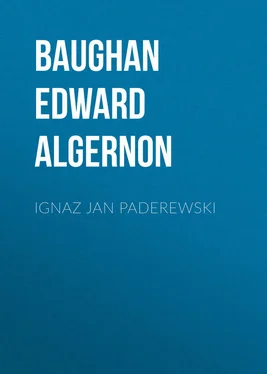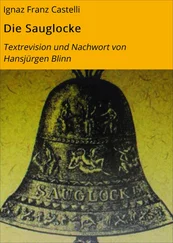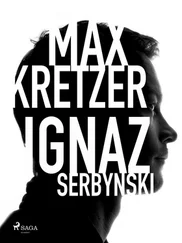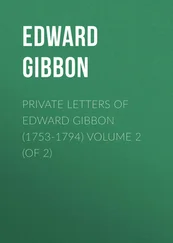Edward Baughan - Ignaz Jan Paderewski
Здесь есть возможность читать онлайн «Edward Baughan - Ignaz Jan Paderewski» — ознакомительный отрывок электронной книги совершенно бесплатно, а после прочтения отрывка купить полную версию. В некоторых случаях можно слушать аудио, скачать через торрент в формате fb2 и присутствует краткое содержание. Жанр: foreign_antique, foreign_prose, на английском языке. Описание произведения, (предисловие) а так же отзывы посетителей доступны на портале библиотеки ЛибКат.
- Название:Ignaz Jan Paderewski
- Автор:
- Жанр:
- Год:неизвестен
- ISBN:нет данных
- Рейтинг книги:3 / 5. Голосов: 1
-
Избранное:Добавить в избранное
- Отзывы:
-
Ваша оценка:
- 60
- 1
- 2
- 3
- 4
- 5
Ignaz Jan Paderewski: краткое содержание, описание и аннотация
Предлагаем к чтению аннотацию, описание, краткое содержание или предисловие (зависит от того, что написал сам автор книги «Ignaz Jan Paderewski»). Если вы не нашли необходимую информацию о книге — напишите в комментариях, мы постараемся отыскать её.
Ignaz Jan Paderewski — читать онлайн ознакомительный отрывок
Ниже представлен текст книги, разбитый по страницам. Система сохранения места последней прочитанной страницы, позволяет с удобством читать онлайн бесплатно книгу «Ignaz Jan Paderewski», без необходимости каждый раз заново искать на чём Вы остановились. Поставьте закладку, и сможете в любой момент перейти на страницу, на которой закончили чтение.
Интервал:
Закладка:
Paderewski himself has disclaimed the pretty stories which made the death of his wife the impetus to his after career as pianist. "I was a professor at the Warsaw Conservatoire," he told an interviewer, "and I had to work awfully hard. Previous to this I had made a concert tour in Russia. In Warsaw I gave lessons from morning to night. It was not interesting. In fact, it was slavery. One day I asked myself why I followed such an arduous profession, and so I decided to go to Leschetitsky in Vienna, and become a performer, since in that way I should work hard a few years and afterwards have a life of ease, to be idle, or devote myself to composition as I pleased." As a matter of fact, Paderewski did not go from Warsaw to Vienna, but first paid a visit to Berlin, where he studied composition with Kiel and afterwards with Heinrich Urban. He was able to hear much more music than was possible in Warsaw and in every way his musical education was being rounded off. At twenty-three years of age he was appointed professor of music at Strasburg. That appointment may be considered the turning point of his career, not because the professorship in itself was anything very brilliant, but because it brought him into contact during a vacation with the celebrated Polish actress Mme. Modjeska. She was practically the first to recognise in the dreamy young pianist something out of the common. She has described him as "a polished and genial companion; a man of wide culture; of witty, sometimes biting tongue; brilliant in table talk; a man wide awake to all matters of personal interest, who knew and understood the world, but whose intimacy she and her husband especially prized for the elevation of his character and the refinement of his mind."
The effect such a friendship had on the young artist may be well imagined. It is probable that even in the Warsaw days Paderewski had the dream of being able to take up the career as virtuoso, but it might have remained a dream, for a young man of twenty who has not blossomed forth as a recital pianist is hardly likely in the ordinary run of things to make any great name for himself as a public pianist. All the players of genius have been prodigies, or would have been had there existed a market for musical wonder-children in their day. Paderewski is the exception. That he had the ambition of making a career for himself as virtuoso even during the Warsaw days may be admitted, but it is probable that had he not been encouraged by his brilliant countrywoman, Mme. Modjeska, he would not have taken practical steps to realise the dream.
II
FROM WARSAW TO PARIS
In the fact that a young professor of music, who was not without note in his own circle, should have decided to give himself up to several years of arduous study, we may perhaps find some indication of Paderewski's tenacity of purpose. In 1886, at the age of twenty-six, he placed himself under Leschetitzky's guidance, and for four years he studied with the famous professor and his wife, Madame Essippoff. It is not too much to say that Paderewski has made a brilliant name for his teacher as well as for himself. Of course, Leschetitzky had a big reputation as a teacher long before his famous pupil went to him, but it was not a world-wide reputation, as it now is. Every season we hear pianists in London who proudly emblazon their programmes with "pupil of Leschetitzky"; they are as numerous as the many "pupils of Liszt," and in many cases have as much right to the description. The difficulty is to decide (from the many articles written by his self-styled pupils) what is the method taught by this Viennese magician and it is almost as difficult to draw any clear conclusion from their playing. A consistent and illuminating account of the great teacher and his methods has been given, however, by Miss Hullah in a volume of this series. Leschetitzky has not any hard and fast methods. Mr. Henry C. Lahee, in his "Famous Pianists of To-day and Yesterday," has this to say of the great teacher: "Leschetitzky's method is that of common sense, and is based on keen analytical faculties. He has the genius for seizing on what the finest artists do in their best moments, observing how they do it physically, and, in a sense systematizing it. He has his own ideas of how to train the hand for all that it requires, but he never trains the hand apart from the ear. He has no 'method' except perhaps in the technical groundwork – the grammar of pianoforte playing – and this is taught by his assistants. So long as the effect is produced, he is not pedantic as to how it is done, there being many ways to attain the same end."
In general it may be said that the Leschetitzky pupils have "style." The fault of the school, if one may judge by its exponents, is a desire to be brilliant and startling at all costs. In the case of a player who has no musical individuality of his own, and has acquired technical facility out of all proportion to his musical endowment and general education in the art, the Leschetitzky tuition seems to make for hardness and a perverse brilliancy. Of course Paderewski himself would have been a remarkable player no matter under whom he had studied, but the surety and firmness of technique which Leschetitzky evidently knows how to impart were just what he required. It must not be forgotten, too, that when Paderewski went to Vienna he was practically an artist, an all-round, well-educated musician, who, from the first, had been interested in the historical as well as the poetic side of his art. In addition, need it be said that he was a man of uncommon mind far removed from the type of virtuoso who inspires his soul from the keys of the pianoforte. No teacher and no method can produce the pianist of "genius." The platitude is excusable in the face of the absurd things which have been written concerning the effect of Leschetitzky's teaching.
That Paderewski gained much from it is clear enough from the fact that a year after going to Vienna he made his début there as virtuoso with much success, and from that time onward his progress was gradual until in 1888 he found himself the sensation of Paris. But it was by no means a case of the kind of artistic conquest which the popular novelist invariably describes when writing of musicians. The first recital at the Salle Erard in 1888 was, indeed, but poorly attended, and, except that no performer of genius ever makes his first appearance without his reputation having preceded him among the inner circle of his brother musicians, the début might have fallen as flat as the ordinary recital by an ordinary, unknown pianist. As it happened, both Lamoureux and Colonne, who were present, were so impressed by Paderewski's gifts that both made him an offer to play at the well-known orchestral concerts associated with their names. M. Lamoureux's offer, being made first, was accepted, and the new pianist was thus given an opportunity of performing before an enormous audience. He made his mark immediately, and was invited to play at one of the Conservatoire concerts, a distinction which, no doubt, he fully appreciated. From Paris Paderewski naturally cast his eyes on London, but it was not until May 1890, that he gave his first recital here. Again his triumph was not immediate, in the novelist's sense, and there was certainly some uncertainty in his reception by the critics, but he did triumph in the end.
III
HIS DEBUT IN LONDON
The statement that the London critics did not recognise Paderewski's greatness is often made to their discredit, but a close examination of all that was written at the time does not bear out the accusation. It was rather that the criticism was a trifle too guarded, and that to some extent the journalists were prejudiced against the pianist through no fault of his own but because he had been described as "The Lion of the Paris Season." Also, although this may seem a trivial reason, the recital took place on one of those pleasant days of our May when rain and wind make conditions in London anything but merry. At any rate all who were present at that first recital agree that the audience was coldly critical. We do not accept the verdict of Paris on musical matters, and the average Englishman is apt to suspect charlatanism in a musician whose "wonderful aureole of golden hair" had been so sedulously advertised. There is no doubt the sensitive pianist felt this atmosphere keenly. He is always nervous when he begins his recital even to this day. "The mere fact of knowing a great audience waits on your labours," he once remarked to an interviewer, "is enough to shake all your nerves to pieces." There is no question that at the first recital he was not at his best, and that there was good ground for the accusation of "sensationalism" which was brought against him by several critics. But, at the same time, his other merits were amply recognised. To prove this I give some selections from the criticisms of the first recital. They should be documents of some interest to the historian of the future.
Читать дальшеИнтервал:
Закладка:
Похожие книги на «Ignaz Jan Paderewski»
Представляем Вашему вниманию похожие книги на «Ignaz Jan Paderewski» списком для выбора. Мы отобрали схожую по названию и смыслу литературу в надежде предоставить читателям больше вариантов отыскать новые, интересные, ещё непрочитанные произведения.
Обсуждение, отзывы о книге «Ignaz Jan Paderewski» и просто собственные мнения читателей. Оставьте ваши комментарии, напишите, что Вы думаете о произведении, его смысле или главных героях. Укажите что конкретно понравилось, а что нет, и почему Вы так считаете.












